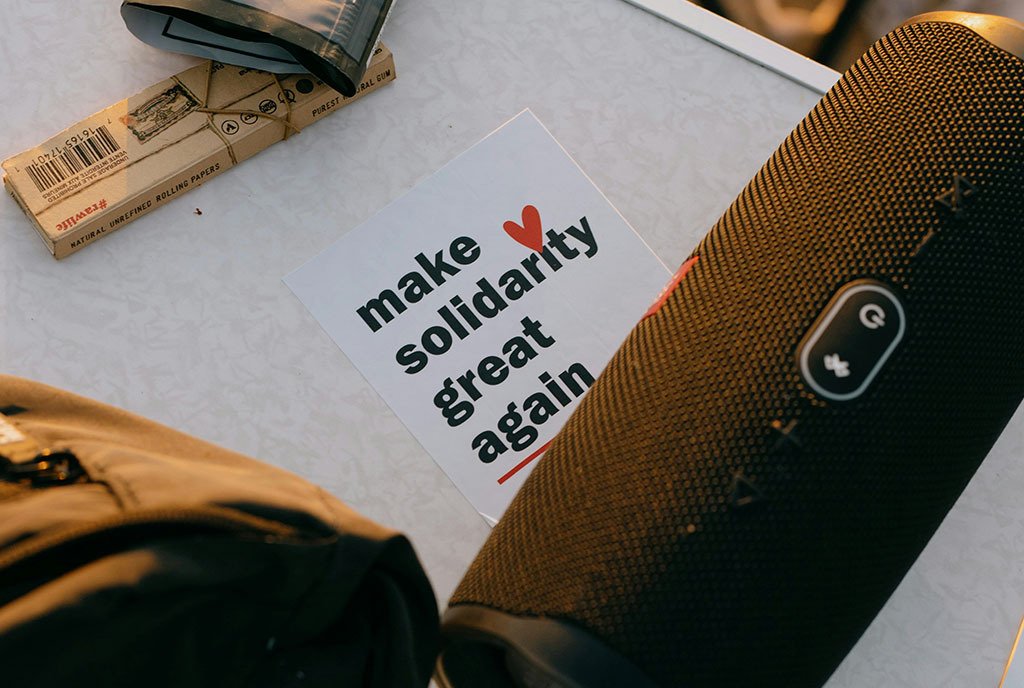
In the United States, Donald Trump’s 2016 election brought increased attention to the ultra-right’s attempts in the United States to gain—and sometimes steal—political power. These efforts have not occurred in a vacuum. They are part of broader efforts across the Americas to stifle political progress.
Take, for instance, the Tea Party movement, which started gaining momentum in 2009 in the United States as a backlash to policies put forth by former President Obama. Around that same time, a conservative wave was shaping up in Latin America in direct response to previous periods of progressive leadership and policies. As the 2024 election approaches amid ongoing attempts to push back against progressive policies, advocates across the Americas are working to build intercontinental solidarity.
This effort led to a historic convening in San Juan, Puerto Rico, which brought together executives from 35 foundations and organizations from the United States and the Caribbean that work to advance racial equity. The two-day event, The Impact of Global Racism in the Americas: A Racial Equity Builders Dialogue, took place on February 21 and 22. Organizers of the convening sought to answer a key question: How will philanthropy’s agenda in 2024 reflect the efforts to stem global racism in the United States, the Caribbean, and Latin America?
As the 2024 election approaches amid ongoing attempts to push back against progressive policies, advocates across the Americas are working to build intercontinental solidarity.
Among the speakers at the convening were Dr. Epsy Campbell Barr, the first woman of African descent to serve as vice president in Costa Rica and Latin America; Angela Glover Blackwell, the Founder in Residence at PolicyLink, an organization that works to advance racial and economic equity for all people; and Vivian I. Neptune Rivera, the first woman to serve as dean of the University of Puerto Rico.
Several representatives from sponsoring organizations also attended, including Casey Family Programs, the San Francisco Foundation, the W.K. Kellogg Foundation, the MacArthur Foundation, and The California Endowment.
The Push for Intercontinental Solidarity
In holding these conversations around combating global racism and building racial equity, the organizers sought to expand on the 1960s Civil Rights movement, which put an international spotlight on the impact of White supremacy in the United States but was primarily viewed through a Black and White lens. In a statement issued by the organizers, they outlined their goals for the convening:
As demographics have changed, we have come to understand that the systems and structures that lift white supremacy are effective at suppressing immigrants, Afro Latine, women, and many others. People of African descent have the opportunity to reframe the narrative to encompass all of the Americas, bridge our histories, and heal the pervasive other of Afro descendants.The convening also included conversations on topics like “Global Racism and the Intersecting Inequalities Across the Americas,” “The Role of Black Leaders as Agents of Change,” and “The Case for Reparations.”
Leading up to the event, NPQ spoke with Nelson Colón, an institutional partner for the convening and the president and CEO of the Puerto Rico Community Foundation. This philanthropic organization has collaborated with donors and communities for over 38 years and is the only organization in Puerto Rico with racial equity as one of its pillars. Since its founding, the organization has invested more than $80 million into organizations and individuals. More recently, the organization has led efforts to help communities become more self-sustaining by funding aqueducts and solar power. (NPQ wrote about this in 2018)
“As demographics have changed, we have come to understand that the systems and structures that lift white supremacy are effective at suppressing immigrants, Afro Latine, women, and many others.”
Sign up for our free newsletters
Subscribe to NPQ's newsletters to have our top stories delivered directly to your inbox.
By signing up, you agree to our privacy policy and terms of use, and to receive messages from NPQ and our partners.
As NPQ previously noted, the Puerto Rican Community Foundation’s work toward racial equity involves investing in six forms of community capital: human, social, financial, physical, cultural, and ecological. The organization believes that for racial equity to manifest it is imperative to work toward community ownership and sustainability.
During the convening Colón led a conversation alongside Susan Taylor Batten that focused on opportunities for philanthropists to strengthen racial equity. Batten is the president and CEO of the Association of Black Foundation Executives (ABFE)—a membership philanthropic organization that advocates for responsive and transformative investments in Black communities.
Colón shared his takeaways from the conversation. First, he noted that particularly given the interconnection in the Americas due to the African diaspora, philanthropic organizations focused on racial equity have the potential to serve as a bridge between organizations in Latin America and the United States. Secondly, it is imperative for philanthropic groups to come together to strengthen groups to have protection against White supremacy. Finally, there needs to be a development of leaders to work in a multiracial democracy.
Colón cited mounting threats by the ultra-right in countries like Argentina, which recently elected a far-right president who threatened to roll back gains on issues like abortion rights; Peru, where the country’s president took office in 2022 after a right-wing coalition overthrew and imprisoned the former socialist president; and the United States, where a current presidential candidate and former president engaged in efforts to overturn the results of the last presidential election.
Philanthropic organizations focused on racial equity have the potential to serve as a bridge between organizations in Latin America and the United States.
Instead of being dismayed by the precarious state of democracies across the Americas, Colón believes these efforts present an opportunity for intercontinental solidarity and for philanthropists interested in building racial equity to work with communities to help them become more self-sustaining. He even envisions the creation of a common fund—a funding base for sustainability.
As Colón and other philanthropists focused on racial equity continue to think about ways to work together, they are sure that the convening in Puerto Rico is only the beginning. Colón says he envisions a yearly convening where innovative ideas can emerge. As a follow-up, the leaders are considering a learning tour where they will visit several countries to learn about their racial equity strategies.
“There’s the knowledge, the resources, the will to create that platform of collaboration and the purpose is to sustain racial equity networks in the region,” he said.











